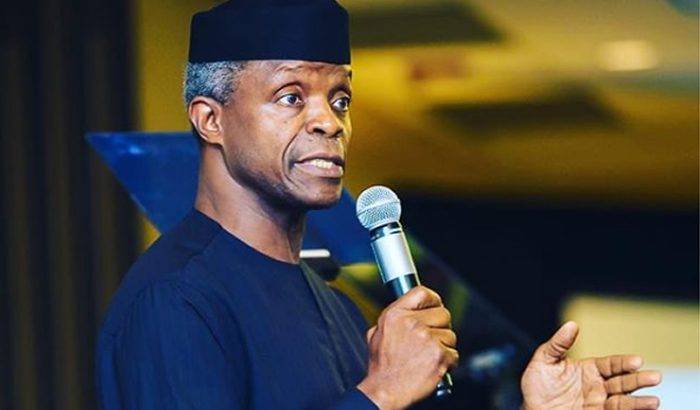VP Osinbajo Cites Investment Opportunities Amidst Nigerian Challenges

Nigeria, like every other African country, is hamstrung by a league of challenges – economic, infrastructural, security, internet penetration and others. But where problems lie, investment opportunities abound.
Vice President of Nigeria, Yemi Osinbajo, has said that the huge developmental challenges facing the West African country and the rest of Africa stand as viable investment opportunities from which groundbreaking innovations can stem.
Yesterday (June 25) in an interactive session hosted by the think tank Council on Foreign Relations, the VP rendered an exposition on the topic “‘Nigeria’s Economic Prospects”. He leaned heavily on four challenging areas in Nigeria’s business landscape – population, technology, agriculture and security.
According to him, the series of events in the four cardinal points of the continent will impact positively or negatively on the world’s fortune in the coming years.
The Problems
He said: “The doomsday scenario is as follows: ‘Africa’s population grows exponentially, food production is not able to match population growth, a rise in transhuman conflicts due to shrinking vegetation and water.
“Lack of jobs and opportunity for a large poorly educated youth population, leading to aggressive illegal migration, vulnerability to extremism and, the creation of a convenient breeding ground for extremist groups and a terrorist launch pad to the rest of the world.
“A horrifying situation indeed, and possible if in the next three decades Africa drops the ball on these four indicators. Neither Africa nor the rest of the world can afford to have these scenarios playing out.”
A Case For Success
Nigeria, currently the most populated country in Africa, will become the third most populated nation in the world by 2050 and the 14th largest economy. With the population on the verge of tripling, there is an opportunity for people to invest in the food market.
For example, Nigeria opened up its telecoms sector for private investments in 2001, and the development was greeted with mixed feelings. According to popular opinion, the country had a large population but did not have a significant number of middle-class citizens buoyant enough to afford mobile phones.
According to Osinbajo, “They were wrong. MTN and Econet took the plunge, and today, market penetration for mobile phones is 114.9 per cent, which technically means almost everybody has a phone”.
He said the country made efforts to replicate the same strategy in the power sector by opening it for end-to-end power supply investment. Along this line Power Africa, a USAID project has made a USD 10 Mn between 2018 and 2023.
What Again?
Nigeria, the economic powerhouse of Africa, is yet developing compared to other nations of the world. But as the country seemingly slowly gains steam, the challenges that abound that be turned into goldmines to profit the Buhari-led nation in the coming years.
She boasts of the ninth most significant stock of arable land in the world and has become a world leader in cassava, yams, sorghum, and millet production.
Osinbajo adds that the country is on the verge of self-sufficiency in paddy rice production, seeing a greater interest in agriculture and agro-allied value chain.
“Carlos, a major Mexican vegetable farmer, came to Nigeria to do vegetables for export and found he was making far more money servicing the domestic market,” he said.
Just like these highlighted avenues, there other problem-faced areas in the Nigerian system that are diamond nests just waiting to be harvested.
This development was first reported by Premium Times.